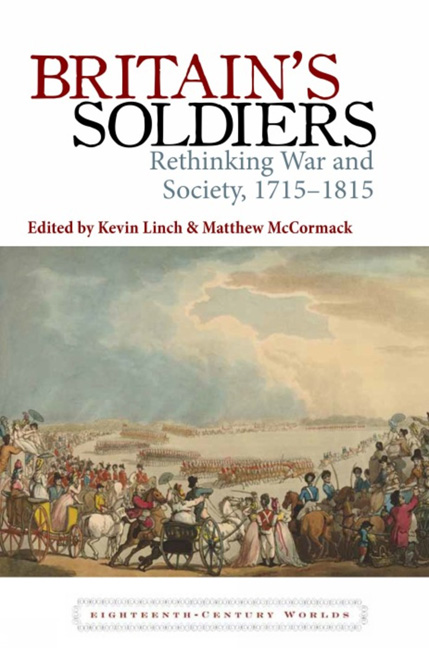Introduction
Summary
BRITAIN had a complex relationship with its soldiers in the eighteenth century. On the one hand, Georgians celebrated their victories, championed military heroes and sympathised with the plight of the injured soldier or the bereaved family. This response is comprehensible today. The wars in which Britain has been engaged since 2001 have been far less popular than those of the eighteenth century were at the time, but the soldiers who have been fighting in Afghanistan and Iraq have enjoyed almost universal public esteem. For example, the charity ‘Help for Heroes’ has achieved a high media profile and has raised millions of pounds for service personnel injured in these conflicts: if its attitude towards the wars themselves is avowedly apolitical, its language of heroism, sacrifice and national pride has served to celebrate the figure of the soldier.
By contrast, any celebration of the soldier in the Georgian period was more than counterbalanced by some very negative prejudices. These could themselves be contradictory. Soldiers could simultaneously be accused of being both a tool and a victim of oppression; of being the strong arm of the law whilst being lawless themselves; of being both brutishly hypermasculine and attached to foppish uniforms; of being addicted both to violence and to the excesses of politeness. All ranks of the army came in for criticism. Officers could be condemned both as social climbers and as unqualified men of privilege, while the common men were apparently drawn from the very dregs of society.
The Duke of Wellington famously – and repeatedly – referred to the latter as the ‘scum of the earth’. As Philip Haythornthwaite reminds us, however, this was not simply an aristocrat disdaining his social inferiors. On one occasion, he employed the phrase to distinguish the British system of voluntary enlistment with continental forms of conscription:
The conscription calls out a share of every class – no matter whether your son or my son – all must march; but our friends [British soldiers] are the very scum of the earth. People talk of their enlisting from their fine military feeling – all stuff – no such thing. Some of our men enlist from having got bastard children – some for minor offences – many more for drink…
- Type
- Chapter
- Information
- Britain's SoldiersRethinking War and Society, 1715–1815, pp. 1 - 14Publisher: Liverpool University PressPrint publication year: 2014

